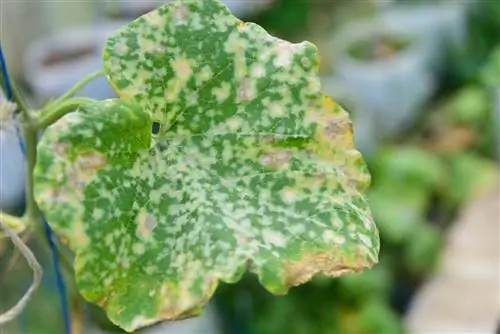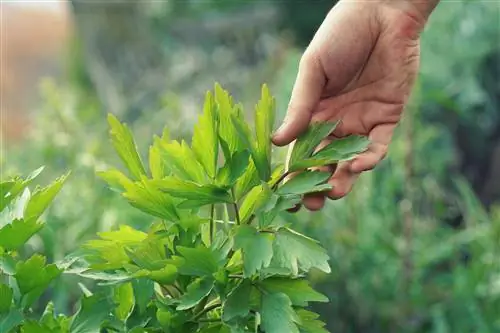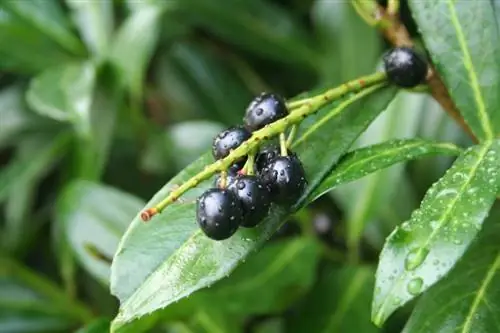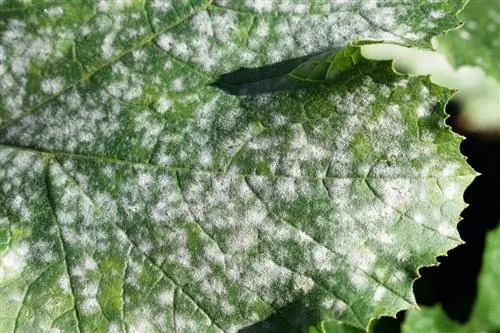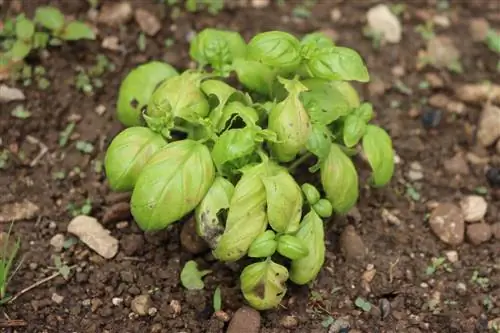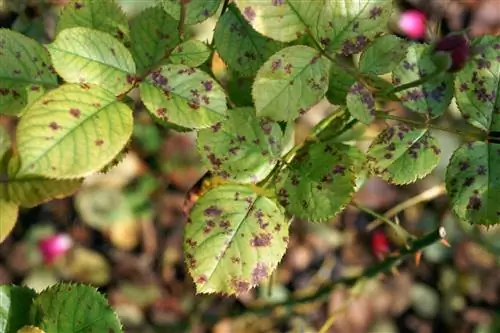- Author admin leonars@hobbygardeners.com.
- Public 2023-12-16 16:46.
- Last modified 2025-01-23 11:22.
Melons come from dry areas in Central and West Africa. They are adapted to dry climates. In humid weather, plants are particularly susceptible to downy mildew. We tell you how to save your melon harvest.
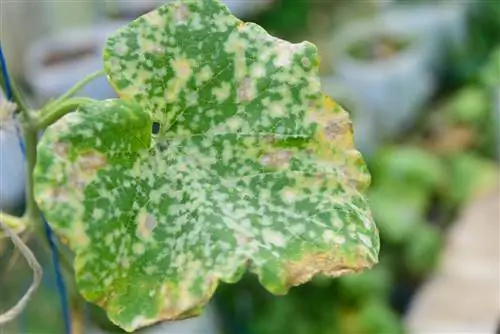
How do I fight downy mildew on melons?
First you shouldremove all infected plant parts Then fight the fungal disease with garlic decoction and field horsetail tea. Even if chemical agents should be the last resort, you can prevent downy mildew with sulfuric clay.
Why is downy mildew so feared in melons?
Downy mildew is the most common plant disease in melonsOnce a plant has become infected through moisture on the leaves, the fungal spores spread very quickly to all the leaves. Some of the plants die within two weeks. This can destroy an entire crop. This applies to both plants in the greenhouse and outdoors.
What can I spray against downy mildew?
Various remedies for mildew are available commercially. The best options for use in the home garden are sulfuric clay (€8.00 on Amazon) or copper hydroxide. Both preparations have a preventive effect against fungi. When using melons in your own garden, you should avoid using other chemical substances.
How can I prevent powdery mildew on melons?
Since powdery mildew spreads very quickly on melons, you shouldbetter prevent it. By consistently avoiding moisture on the leaves, you can protect your melons from the fungal disease to a certain extent:
- airy and warm location
- Tie up melon plants
- Do not pour water on the leaves
- No contact with other plants that may transmit mildew
- Protect plants from rainwater
- Home remedies for control, spray in the morning so that the leaves can dry
- Use home remedies to strengthen plants.
Tip
Can I still eat infected melons?
Mildew is generally not poisonous. However, the fungal spores can trigger allergies. Therefore, it is better to avoid eating infected melons.

